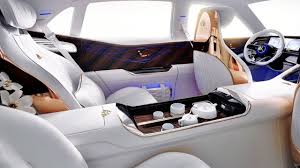Equipping professional accountants for sustainability
The International Federation of Accountants has developed a concise resource to guide accounting professionals and...
READ MORE
The Australian Taxation Office has identified common errors and compliance issues from agents when they are claiming for luxury car tax and is urging tax agents to follow the guidelines to avoid potential prosecution.

In a statement, the ATO issued a number of rules to follow if businesses or clients are claiming LCT.
Firstly, LCT can be deferred in some circumstances by quoting the ABN of the client to the dealer/wholesaler. This is called buying “under quote” or “quoting”.
For businesses, agents/clients can quote when they have a valid ABN, are registered for goods and services tax (GST) and are a luxury car dealer who is purchasing the car solely as trading stock; an entity conducting research and development (R&D) on the car for the manufacturer, or intending to make a GST-free export.
Car dealers are correctly supplying under quote if the ABN quoted is valid and registered for GST; a copy of the purchaser’s motor dealer licence or other entitlement to trade in cars is retained.
If customers are unsure if the car’s purchaser is a legitimate motor vehicle dealer, then they should consider limiting their risk by not accepting the quote.
The ATO said it’s also important to keep accurate and current records to support any LCT claim and apply for adjustments on business activity statements (BAS).
Records must show: that the business is conducting an enterprise involving trade in luxury cars; how the business/client acquired, or imported, and paid for the cars; how the cars have been; how vehicles were sold, exported or otherwise resupplied the car.
Some common errors when reporting or claiming LCT include using an incorrect formula or the wrong LCT threshold; dealers/resellers who deferred LCT, not reporting and paying LCT on their BAS immediately after they sell the car or starting to use it for a non-quotable purpose; primary producers or tourism operators claiming a refund via the BAS and not via the application for luxury car tax refund – primary producers and tourism operators form; claiming a GST credit for the GST and LCT, when businesses cannot claim back the full GST or the LCT.
Businesses need to report LCT on their BAS, using the same tax period as they do for GST reporting.
The ATO warned of a number of issues that attract its attention in relation to the LCT saying it has observed small amounts of non-compliance, as well as tax avoidance schemes and sham arrangements directed at avoiding LCT.
Some of the behaviours ATO is most concerned about include resellers who undercut legitimate dealers on price by evading LCT and GST on luxury car sales – these reseller entities manipulate buyers and sellers for their own financial gain to the detriment of the broader community; individuals who attempt to pass off private luxury car purchases as a trading enterprise to fraudulently access LCT and GST benefits; dealers or resellers falsely asserting that luxury cars are being held solely as trading stock when the cars are being used frequently for “extended” test drives, personal use or informally leased or sold; organised criminal networks infiltrating the luxury car industry to launder money, hide assets and commit tax fraud, including LCT fraud – these networks contribute to the shadow economy and deprive legitimate business of competing fairly in the market.
Businesses are warned they may be penalised or face criminal prosecution if they engage in or facilitate these types of behaviours.